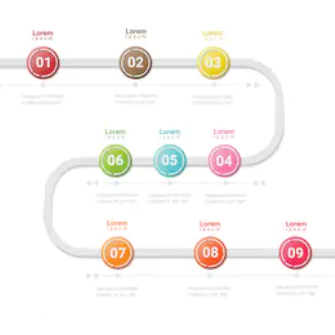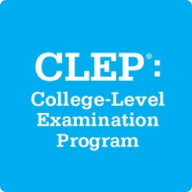FEATURED ARTICLE
Test-taking strategies for CLEP* and DSST Exams
Believe it or not, knowledge of the subject matter is only one part of passing your CLEP* and DSST exams. Of course, in an ideal world, you would fly through your exam, recognizing every correct answer right off the bat, but in real life, things are often not as straightforward. Let’s look at a few simple strategies and principles that may make the difference between passing or failing your exam.
Keep an eye on the time
This is probably the biggest problem that brings inexperienced test takers down. They get bogged down on a handful of difficult questions, and then before they realize it, time is almost up, and they end up having to rush through the last questions. This results in sloppy mistakes or even unanswered questions. Every question on the exam is worth the same amount, so you do NOT want to spend too much time on any single question.
TIP: When you first start the exam, rush through and answer all the questions that you can answer in 30 seconds or less, marking the questions you feel will take longer to answer. Then go back and take your time with the remaining questions. If you are stumped on one of the questions or have no idea, then mark an answer and move on.
Mark an answer for EVERY question
When your exam is being scored, the software looks at the number of questions you answered correctly. It ignores questions that you got wrong or left blank. That means even if you have NO idea what the answer to a question is, you need to choose an answer. For a completely random guess, you have a 20 or 25% chance of getting credit for that question. If you can eliminate one or two of the distractors, obviously your chances go up significantly.
Stay alert for useful information
Sometimes, the information contained in one question will help you figure out the answer for another question, or at least help you to eliminate one of the answer choices. A made-up example would be if on the Introductory Psychology CLEP exam, you faced a question asking about what Erik Erikson believed about the development of personality. Then on a later question, the answer choices list out four of his psychosocial stages. This information might jog your memory and help you to deduce the correct answer on the first question.
Go with your first instinct
One thing any veteran test-taker will tell you is, if your gut instinct initially makes one of the answers stick out to you, then choose that answer and do not look back! Obviously, if you remember something or new information becomes available through one of the later questions, that is a different story, but generally, when you go back and change your initial choices, more often than not, you are less likely to get the question right.
- TIP: If an answer seems too obvious, do not overthink the question or secondguess yourself. The writers of these exams do not tend to put in trick questions. If it looks like the correct answer, then it probably is!
Do NOT get discouraged
Sometimes, you might run into a string of questions where you feel like you are making educated guesses on every single one. If this happens, don’t get discouraged! Keep managing your time, doing your best to eliminate incorrect answer choices and make good guesses, and stick with your system. Remember, you just need a pass. Your college is not going to give you any bonus points for maxing out the exam!
Get plenty of rest
The last tip is to make sure you get a good night’s sleep, eat a light meal before the exam, and stay relaxed. Eating too much can make you drowsy or create an awkward situation where you need to go to the restroom — both situations that can keep you from focusing 100%. Control what you have control over, and trust in your preparation. You put in the hard work to get ready for the exam, so the results will speak for themselves. Happy testing!




